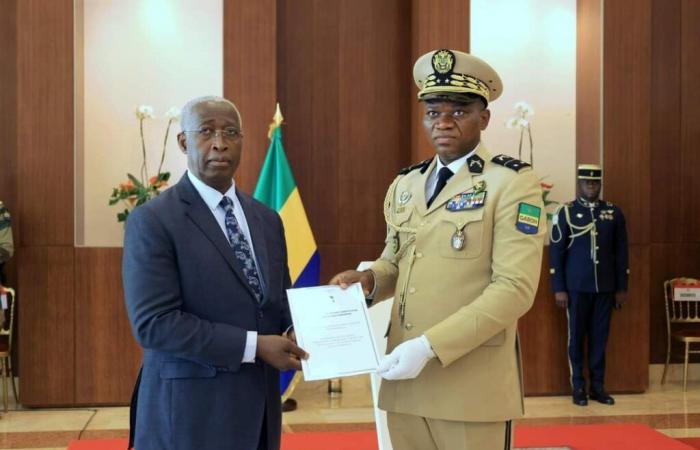The Gabonese people voted on a new constitution, with 91.8% of the votes cast in favor of “yes”, according to provisional results. This text, carried by the junta led by General Brice Oligui Nguema, aims to turn the page on the Bongo regime and to regulate the current transition.
According to provisional results published on Sunday by the Ministry of the Interior, the new constitution proposed by the transitional regime led by General Brice Oligui Nguema received 91.8% of votes in favor. This referendum, considered a key step in the transition initiated after the end of the Bongo regime, recorded a participation rate of 53.54%, lower than the first estimates of 71%.
On Saturday, 868,115 voters were asked to choose between a green ballot for “yes” or red for “no”. This election, described by the authorities as a “historic moment”, comes a little over a year after the coup d’état of August 30, 2023 which ended 55 years of domination by the Bongo family.
Once the results are validated by the Constitutional Court, the process should continue with a presidential election scheduled for August 2025, marking the end of the transition. General Oligui, who promised a return to civilian rule, did not rule out a candidacy, while advocating economic and social development for the country.
Process and organization
The poll was held in a peaceful climate, with a curfew adjusted from midnight to 5 a.m. for the entire electoral period. According to the authorities and the Citizen Observers Network (ROC), supported by the United Nations, no major incidents were reported during the voting day.
The counting process, governed by the electoral code, saw the ballots incinerated on site after counting, while the minutes were centralized at the Ministry of the Interior, in the absence of the electoral bodies dissolved after the coup. State. However, the ROC noted that its observers were unable to attend the counting in certain offices.
Issues and content of the new constitution
The constitutional text of 173 articles, drawn up after a national dialogue in the spring, introduces major reforms. Among them are a presidential term of seven years renewable only once, the ban on the hereditary transmission of power, and the abolition of the office of Prime Minister.
The second article establishes August 30 as “Liberation Day”, a date marking the junta’s coming to power. Article 170 provides for exemption from prosecution for those involved in events linked to the transition.
Certain provisions, such as the limit of presidential mandates and the method of election by universal suffrage, are declared non-revisable. A notable novelty is the introduction of compulsory military service for girls and boys.
Debates and perspectives
The referendum campaign, dominated by official discourse, was marked by differences. Opponents criticized an excessive concentration of powers around the transitional president, while supporters of the text called for “turning the page” by supporting “yes”.
The next step, if the new constitution is adopted, will be to ensure an inclusive transition in preparation for the 2025 presidential elections.
APA/AFP






